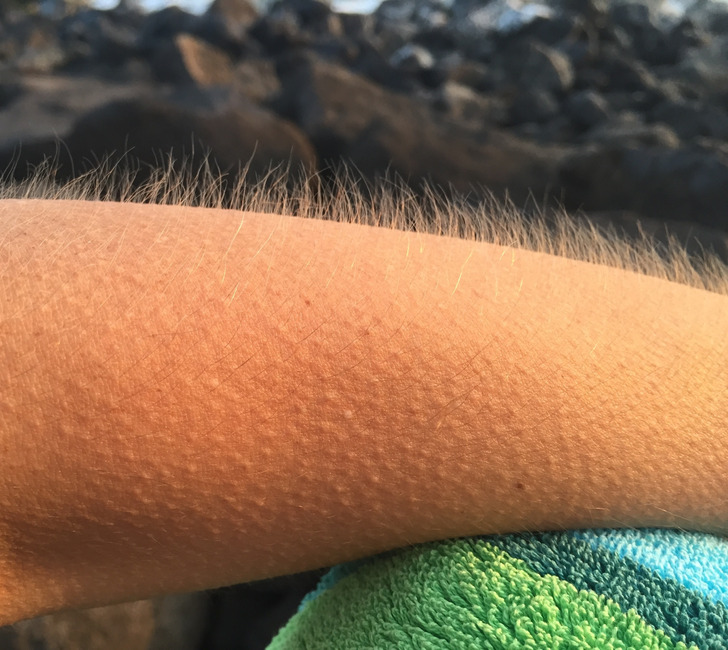Start working from home! Great work for-Ever, Stay at Home Moms OR anyone needs an extra income. Get started. You only need a computer and a reliable computer connection so don’t get late try……___https://t.ly/NrQ6N
6 Tips to Decode Messages Your Body Is Sending You
The human body is such a complex “machine” that scientists still don’t know much about it for sure. Like why we still do such odd and “useless” things like sleeping or even more pleasant ones like laughing. There are many speculative theories. Though many of the functions require less explanation and have been thoroughly studied a long time ago.
We at Bright Side have decoded 6 of the most frequent signals our body sends and would like to share what simple things lie behind each and every one of them.
1. Seasickness
Seasickness, as well as other types of motion sickness, happens because the brain received messages differently from what we see and hear. This confusing information causes you to feel sick, unwell, and dizzy. For instance, on a boat, our bodies sense the motion but cannot actually see it, as far as the entire boat seems to be still. As a result, the brain concludes that we are hallucinating and further concludes that the hallucination is due to poison ingestion.
But don’t haste to take pills if you even have some. There are some simple things you can do to reduce the effect. Like sitting and looking straight ahead at a fixed point, such as the horizon; close your eyes and breathe slowly focusing on every inhale and exhale; distract yourself by talking or listening to music. Even singing songs might help, which may be a more pleasing thing to do during your journey.
2. Yawning
Yawning has been a mystery for scientists for a pretty long time being the least understood of all common human behavior. In particular, nobody understood why it is so contagious when seeing or hearing someone yawning, even reading about it might trigger one.
Some researchers state that yawning might help pump cerebrospinal fluid around the brain, which could trigger a shift in neural activity. Others say it might help our brain to chill and stop it from overheating, calling it a kind of air conditioning for its cells. Cooling the brain slightly might also make us more alert, and wake us up if we are bored or distracted. Spreading from person to person, contagious yawns therefore might help us as a group to focus.
3. Shiver down the spine
It’s quite understandable why we get “goosebumps” when they are cold or sick. Under other circumstances, those feelings are normally associated with fear. Animals’ hair stands on end to make them look bigger and scarier. It turns out we have the same mechanism kindly presented to us by nature. Shivers down your spine simply release the adrenalin which helps us to prepare to either to fight off or run away from the danger.
The weirdest thing is when we feel the same listening to a beautiful singer or even more beautiful music. Here scientists aren’t entirely sure what the actual causes might be. One theory is that it’s something unexpected that causes the same response. Some sudden changes in the tempo or the volume, for example. And all the unexpected automatically is perceived as dangerous, although it’s quite pleasant and enjoyable.
4. Hiccups
Scientists have never been able to completely understand why people hiccup, but they have proposed several explanations for this mysterious reflex. Hiccups are mainly triggered by the presence of air in the stomach. This stimulates the sharp intake moving swallowed air out of it. This allows effectively “burping” suckling infants to consume a greater volume of milk in the meal.
Adults seem to maintain this infantile reflex, which mostly serves as a reminder that we may have eaten too quickly. It may be irritating, especially if it starts in a public place. But nevertheless, it is completely harmless. It may be a sign of a serious disease only if hiccups continue for more than 48 hours or occur frequently. There is a person that was hiccuping for 63 years but lived more than 96 years after all.
5. Lump in your throat
Globus sensation can affect anyone of any age. Everyone has been sad once and felt a lump in their throat, even if there was nothing physically there. It’s pretty common when people get bad news or are about to cry. It may also be a consequence of the inbuilt response to danger or intense stress.
In an emotional situation, the body pumps extra blood and oxygen to the brain and muscles. It does it harder and harder so breathing becomes more frequent. To facilitate the process, vocal cords expand allowing more air to pass through our throats. But when we try to swallow the glottis closes and the muscles work against each other not fully relaxing, which causes that “lump” sensation.
6. Wrinkled toes and fingers
For decades scientists have been baffled about the reasons why our fingers and toes become wrinkled after spending a long time in the water. And now they seem to have found the answer. According to a number of researchers, wrinkling became an evolutionary advantage that allowed us to get a better grip in wet conditions. It might have helped our ancestors to handle tools in the rain, as well as have steadier footing on a soaked floor.
How did you explain all these things to yourself? What other common body signals would you like to decode next time? Please tell us in the comments below.
Comments
Related Reads
15 People Who Put All of Their Heart and Soul Into Their Job

Experienced Tourists Tell Us About Hotels’ Flaws and Other Troubles You Can Face on Adventures Around the World

Can You Make Someone Fall in Love With You? Science Says Yes

15+ Images to Inspire Us to See the World the Way Kids Do

The Image That Can Reveal Your Deepest Fear

14 Riddles That Can Challenge Your Brain and Exercise Your Mind

10 Terrifying True Stories to Keep You Awake All Night

10 Parents Who Take Boundaries and Smash Them Into Dust

10+ Stories That Prove Parents Would Risk Anything for Their Kids

15 True Hotel Stories That Are Too Surreal to Be Real

I Threw My Stepmom Out of My Dad’s House — It’s Not a Free Hotel

10 People Whose Plans Crumbled Faster Than You Can Say “Bon Voyage”











